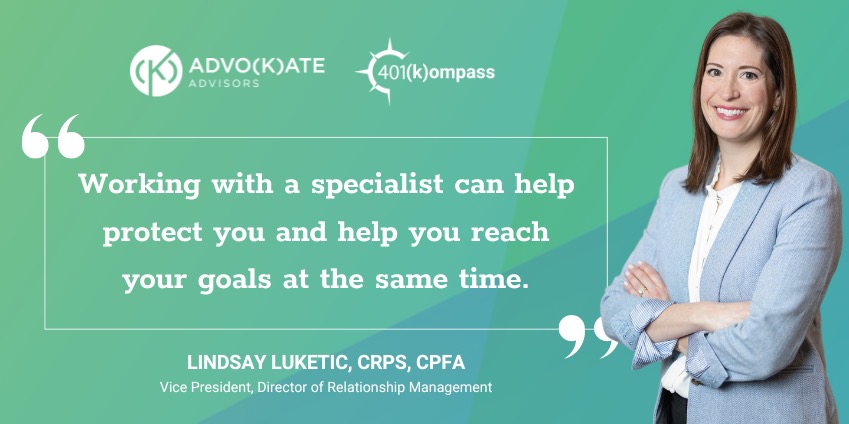As a firm specializing in managing retirement plans for 90+ companies, we recognize the numerous challenges that can impact your business and expose it to potential liabilities. In this brief commentary, we address the critical topic of fiduciary responsibility and highlight common oversights made by plan sponsors. Understanding and rectifying these issues is essential for the effective management of your 401(k) plan and the financial security of your employees.
Evaluating Investment Options:
One of the primary mistakes we observe among plan sponsors is neglecting to thoroughly evaluate the investment options within their plans. Failing to do so can lead to a misalignment between the investment menu and the needs of participants, potentially hindering their retirement savings. We emphasize the importance of regularly assessing these options, ideally on a quarterly basis, to ensure participants have access to a diverse range of investments, thus maximizing their retirement savings potential.
Understanding Fee Structures:
Another critical aspect that often goes overlooked is understanding and transparently disclosing the fee structure of the plan. Hidden fees, such as 12B-1 fees or sub-transfer fees, can gradually diminish participants’ account values over time, while also exposing employers to legal liabilities. By prioritizing transparency in fee structures, plan sponsors not only fulfill their fiduciary obligations but also empower participants to make informed investment decisions for their financial futures.
Providing Ongoing Education:
If you’re unsure whether you’re fulfilling your fiduciary duty or have questions about optimizing your retirement plan, don’t hesitate to reach out to us at 401 Compass. We’re here to provide expert guidance and support in navigating the intricacies of 401(k) management, ensuring the financial security and well-being of both you and your employees.
Conclusion:
In conclusion, fulfilling fiduciary duties is paramount for plan sponsors in managing their company’s 401(k) plans. By avoiding common pitfalls such as neglecting investment evaluations, overlooking fee structures, and failing to provide ongoing education, employers can safeguard their employees’ financial futures while mitigating legal risks.
Lastly, employers frequently underestimate the importance of providing ongoing education and support to participants. Without proper guidance, individuals may make mistakes that impede their retirement savings progress. By offering resources and educational materials, employers can empower their employees to make sound investment and financial planning decisions, ultimately enhancing their long-term financial well-being.
Remember, proactive management today leads to a more secure retirement tomorrow. Let’s work together to maximize the potential of your company’s retirement plan.

